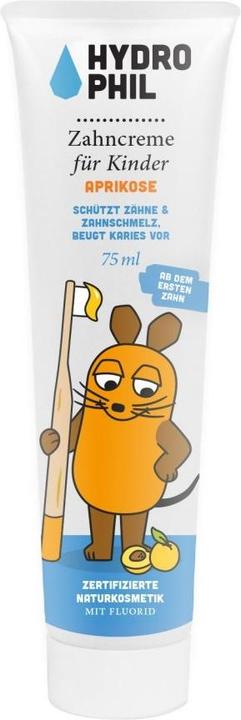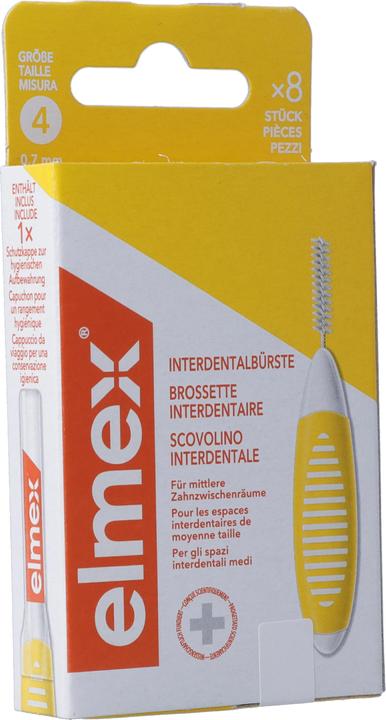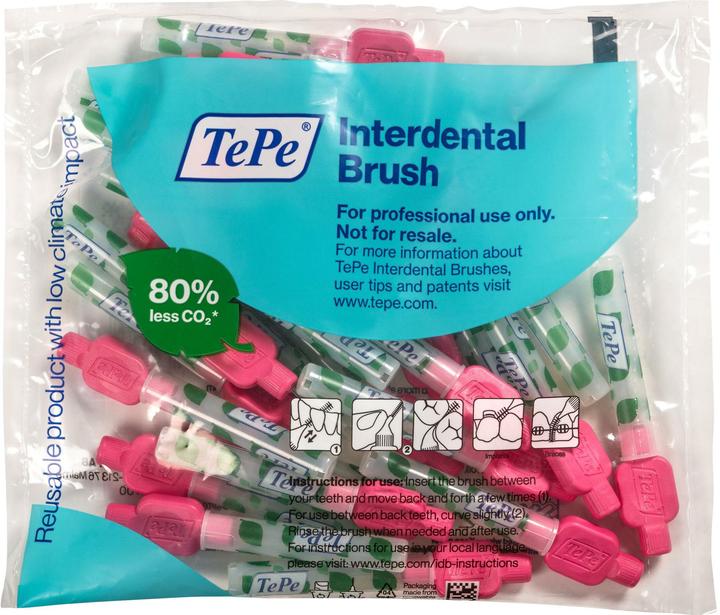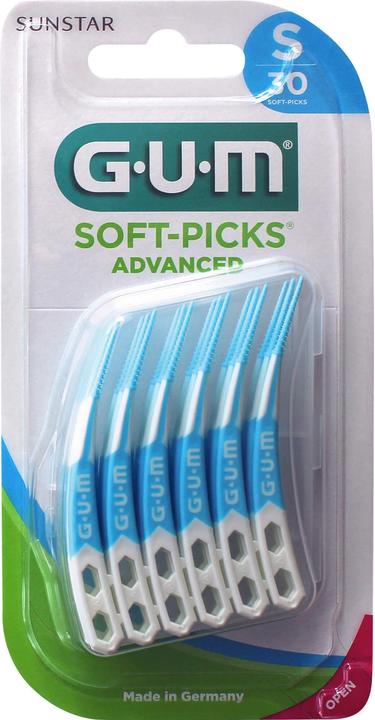

Healthy smiles are hereditary, right? We get our teeth into some well-known oral hygiene facts
Milk teeth don’t need looking after, chewing gum is as good as brushing and you can’t properly clean your teeth without flossing – true or false?
Looking after our teeth is probably the first routine that we learn to hate: it all starts with our first tooth painfully pushing its way through, and it only ends with our last breath through our dentures. The older we get, the more complex and expensive dental hygiene becomes, more aids come into the picture and sometimes even more frightening devices that we spot and/or hear rattling from the dentist’s chair...
Why do we do it? On the one hand, we know there’s no getting around taking good care of our gnashers. Missed dental care and lifestyle choices such as smoking lead to painful procedures sooner rather than later. On the other hand, our teeth are assets. Just look at Austria. According to a survey, one in two people in Austria is convinced that beautiful teeth make you more attractive, and 30 per cent even associate them with professional and personal success.
An international study from 45 countries (information in German) also found that almost 79 per cent of those surveyed rated daily dental care as «very important». This is also reflected in the fact that, in 2021, around 13.6 billion euros were spent on dental and oral hygiene products in Germany alone (report in German).
Even if there’s already above-average awareness of proper dental care in Switzerland, some people may still ask themselves if all the oral hygiene treatments, tools and insider tips are really necessary. To what extent is time-consuming dental care justified? And how much of it can we leave out? Here, we take a closer look at seven dental hygiene facts:
Dental hygiene fact #1: Healthy teeth are (unfortunately) not in your genes
Let’s start at the beginning – before our first milk tooth appears, before we’re even born – with our genes. Healthy, white teeth are inherited – erm, no, they’re not!
Our teeth are surrounded by a biofilm, which changes when it’s attacked by cariogenic bacteria, allowing tooth decay to spread. In a twin study, researchers set out to find out whether these bacteria are inherited or whether poor dental hygiene is responsible for their spread. Unfortunately, the result is clear: some oral bacteria are hereditary, but not the ones that cause tooth decay. In fact, the bacteria identified in the study were the result of too much sugar.
The authors of the study concluded that, although the bacterial environment in our mouths is hereditary, this effect is particularly noticeable in early childhood. That means the older we get, the less we can put dental problems down to bad genes. Instead, we have to take matters into our own hands – and take better care of our teeth.
Dental hygiene fact #2: Milk teeth need particularly intensive care
It’s a mistake to think that milk teeth don’t need any special care just because they’ll fall out anyway. On the contrary, it’s exactly what a young tooth needs because it’s particularly susceptible to tooth decay (according to a study, it usually affects the molars (information in German)). In his book «Auf den Zahn gefühlt», dentist Stefan Fickl explains why: «Unlike permanent teeth, the protective layer of enamel on milk teeth is much thinner and they are closer together.» The thin layer of enamel is basically a breeding ground for the bacteria that cause tooth decay – and the close proximity of milk teeth also make it difficult to attach dental fillings well.
The relatively young phenomenon of chalky teeth shows why it’s important to keep an eye on teeth, even in small children. These calcification disorders show up as brownish or yellowish discolouration. These teeth with brittle enamel often result in children suffering from severe sensitivity, mostly in their back molars. Technically known as «molar incisor hypomineralisation», the causes of chalky teeth haven’t yet been identified in research. Plasticisers in drinks bottles and dummies are suspects, according to dentist Fickl in his book. Chalky teeth with defective enamel are associated with an increased risk of tooth decay. Brown discolouration, even on milk teeth, needs to be treated early by a dentist. Chalky teeth on a first tooth often leads to the same condition on permanent teeth.
Between 60 and 90 per cent of childhood tooth decay is caused by depressions in the molars. That’s why you can seal them – even milk teeth – with an artificial coating. In Switzerland, fluoride varnish is only recommended if there’s an increased risk of tooth decay in childhood. However, the «Fluoridation measures for caries prophylaxis» guideline from various dental societies states very clearly: «[...] the use of a fluoride varnish during the first six school years [...] led to reduced prevalence of tooth decay. This also applied to fissure sealants» (website in German). You’re best off asking your dental practice whether they recommend sealants and fluoride varnish for children.
My colleague Katja Fischer has covered the most importation considerations when it comes to dental care for children with milk teeth:
Dental hygiene fact #3: Fluoride toothpaste is essential for healthy teeth
Fluoride in dental care is standard in Switzerland, but there are still «controversies», as outlined in the «Fluoride update» in issue 130/9-2020 of the «Swiss Dental Journal SSO» (article in German): «Fluoride and products containing fluoride associated with non-specific complaints such as stomach pain, concentration problems, headaches, etc., where there is no corresponding scientific basis. Questions about the impact of fluoride on children’s cognitive abilities have been raised more and more recently.»
There’s no reason to believe this misconception. Because the fact is: toothpaste containing fluoride is really good for our teeth. Fluoride protects our teeth because it hardens their enamel, increasing their resistance. And that’s particularly important with milk teeth, because, as I said, the enamel on children’s teeth is even softer than their adult counterparts.

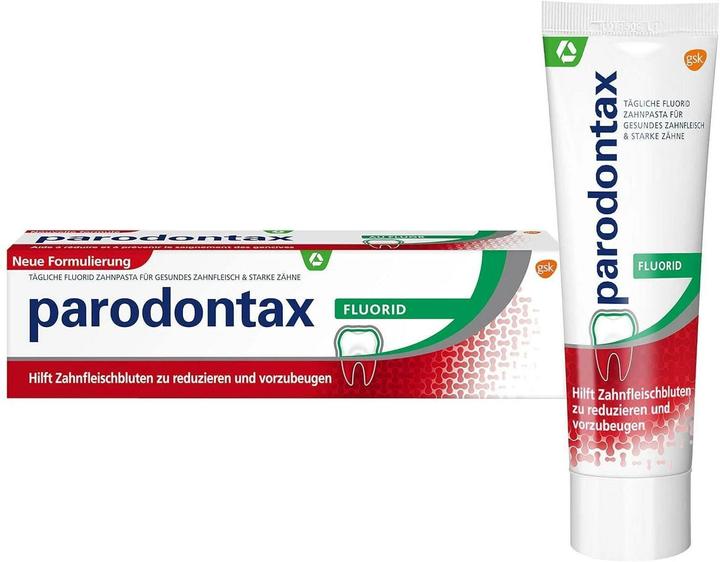
Parodontax Daily Toothpaste Fluoride Paste
75 ml

This means that fluoride treatments are recommended from childhood to prevent tooth decay. The Robert Koch Institute writes in the «Journal of Health Monitoring» (in German): «Recommendations work on the assumption that the reduction in tooth decay is greater the more frequently the teeth are brushed with toothpaste containing fluoride.» There are nearly 300 clinical studies supporting the clinical efficacy of fluoride, supported by a meta-analysis by the Cochrane Collaboration.
And don’t worry about the substance’s rumoured toxicity – fluoride isn’t the same as fluorine, the toxic gas. The aforementioned controversies often stem from them being confused with one another.
The following recommendations (in German) for using fluoride toothpaste in children and adults apply in Switzerland: children under the age of two should have their milk teeth cleaned twice a day with toothpaste that has a fluoride content of up to 500 ppm. For older children or in the event of an increased risk of tooth decay, we recommend up to 1,000 ppm of fluoride. And adults should use a toothpaste with up to 1,500ppm of fluoride. For older people, people with exposed tooth necks or those who’ve just had a root canal treatment, recommendations can even go up to 5,000ppm of fluoride.
Dental hygiene fact #4: You don’t need to floss to prevent tooth decay
First of all, it should be said that there are good arguments for dental floss. Ultimately, it removes leftover food and, with it, microorganisms that can potentially lead to tooth decay. But we shouldn’t worry too much about it either. Because research into the effectiveness of dental floss – we’re supposed to use it to physically clean the gaps between our teeth – isn’t exactly overwhelming.
The German Society for Dental, Oral and Jaw Hygiene (DGZMK), for example, classifies tooth brushing with fluoride toothpaste as more important. According to the society, there’s insufficient evidence for dental floss preventing tooth decay.
A Cochrane Institute analysis of 12 high-quality studies on the effectiveness of cleaning between teeth shows that dental floss offers only little protection against plaque formation and gingivitis, and no study showed convincing evidence of the positive effect of dental floss against tooth decay.
However, periodontitis patients should pay more attention to cleaning the gaps between their teeth. But they should use interdental brushes rather than dental floss – and make sure they use the right size. A consultation with a dentist in advance is also recommended.
Dental hygiene fact #5: The more frequently and longer we brush our teeth, the better
This statement is only partially true. According to the experts frequent and long brushing sessions (more than twice a day) result in better tooth decay prevention. This is confirmed in a guideline (in German) by the German Society for Dental, Oral and Maxillofacial Medicine: brushing your teeth once a day reduces plaque by an average of 42 per cent, brushing your teeth for one minute reduces it by 27 per cent and brushing for two minutes reduces it by 41 per cent.
However, the authors of the guideline also write: «It is assumed that tooth decay prevention probably depends not so much on the frequency as on the quality of tooth brushing.» An «optimised individual and systematic approach» to brushing your teeth is more important.
Although frequency seems to be less important than brushing technique, there are minimum requirements: the Austrian health portal (website in German) recommends the «2x2 formula»: brush your teeth for two minutes after breakfast and before going to bed. Brushing your teeth after every meal is optimal, three times a day for two minutes or «3x2». But it’s important not to reach for your toothbrush immediately after eating. Fruit, soft drinks and some carbohydrates throw the neutral environment of your mouth off-balance, albeit temporarily, which makes your tooth enamel more vulnerable. Therefore, wait about 30 minutes before brushing your teeth after eating.
Despite everything, the conclusion is that frequency is less important than getting fluoride on as many teeth as possible. And brushing between your teeth and gums is equally important. Tooth decay is really common in the places where gums and teeth meet, so you should make sure you clean them properly.
Dental hygiene fact #6: Chewing gum can replace brushing your teeth
Well, at least in part. Chewing gum doesn’t save us brushing our teeth every day, but if you don’t have the time or opportunity to brush your teeth three times a day, you can rinse your mouth out with water every so often or use chewing gum. The only condition: the chewing gum has to be sugar-free.
Chewing gum stimulates the flow of saliva, and saliva «strengthens tooth enamel, has an antibacterial effect and also flushes out the gaps between teeth,» says dentist Fickl in «Auf den Zahn gefühlt». Studies have shown that chewing gum containing calcium can help to remineralise teeth and prevent tooth decay. Researchers have also found in the Chinese Journal of Dental Research that chewing gum containing fluoride causes slightly increased fluoride absorption in the tooth enamel. Sugar-free chewing gum is therefore a very useful addition to your daily oral hygiene routine, but it can never completely replace brushing your teeth.
Dental hygiene fact #7: Oil pulling promotes oral hygiene
Oil pulling is a very controversial subject (article in German). The practice flooded out of Ayurvedic culture (where it’s known as gandusha and is part of the so-called dhauti, one of the six main purification practices of hatha yoga) and straight onto pharmacy shelves. Rinsing your mouth daily with a spoonful of flaxseed, sesame, coconut or other vegetable oils is said to improve oral hygiene and dental health. The procedure is supposed to bind bacteria, detoxify the mouth and even whiten teeth. It has to be said that the research into oil pulling is pretty thin, but at least positive effects on oral and dental hygiene have been scientifically proven.
Research has concluded that oil pulling strengthens gums, meaning less frequent inflammation. The authors summarise that: «Oil pulling can be used as a preventive measure for better dental health.» Another study showed that bacteria causing tooth decay and Lactobacillus acidophilus in the mouth were significantly reduced after just one week of oil pulling. However, there is a complete lack of scientific evidence in terms of its detoxifying effect on the rest of the body.
But there’s a big but: the team from Medizin Transparent (website in German) is very critical of the lack of research, concluding that studies that have been carried out are inadequate and not meaningful. Relying on oil pulling to prevent tooth decay is therefore not a good idea.
Header image: Shutterstock
I'm a sucker for flowery turns of phrase and allegorical language. Clever metaphors are my Kryptonite – even if, sometimes, it's better to just get to the point. Everything I write is edited by my cat, which I reckon is more «pet humanisation» than metaphor. When I'm not at my desk, I enjoy going hiking, taking part in fireside jamming sessions, dragging my exhausted body out to do some sport and hitting the occasional party.
Practical solutions for everyday problems with technology, household hacks and much more.
Show all